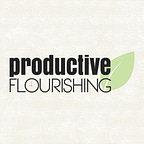Barb Suarez is a health educator who specializes in the transformational events of pregnancy, birth, and parenting. She joins Charlie and Angela today to talk about the often unspoken realities of new parenthood, including how the process is identity-shaping for all three people, how to have a smooth transition that increases bonding, and how parenting and childbirth have shifted since the rise of the Internet and social media. If you’re thinking about having kids, in the process of having kids, have kids or have loved ones having kids, there are takeaways here that will help ensure that parents are doing their best to focus on what works best for them.
Key Takeaways:
[1:55] - Having a child is one of the most transformational events that happens in any person’s life. It is an identity-changing process for many of the people involved, and that can create some tension in different ways. It is a great time of transformation, but a lot of it comes down to how much people are willing to lean in and embrace that kind of transformation.
[4:05] - Barb tells her story of how she landed in this line of work. Growing up, she was more of a tomboy than anything. When she experienced the birth of a dear friend’s child for the first time, she realized how much power she had as a woman to be a co-creator in the experience of birth.
[5:37] - Barb is a health educator who specializes in childbirth preparation and new parenting. She started teaching her classes about twenty years ago. She feels lucky to be in a profession that is well-suited to who she is and what her strengths are, which doesn’t come around for everyone. In the last year, she has turned her blog into a full-blown website, and she’s starting to embark on moving her work out into the community.
[8:40] - Somewhere in the pregnancy or after the birth, there is a moment of clarity and revelation where the magnitude of taking care of a whole other human being really hits you. A sense of vulnerability kicks in, and it seems to be amplified in this generation, due to the internet. The parenting that happened pre-internet and post-internet and social media are two very different things. Today, there is so much information available on parenting, but you have to discern what is right for yourself. Additionally, on social media, people typically only share the good stuff, rather than the challenges many parents are probably facing.
[12:30] - One of the things Barb is most invested in through her work is helping people be okay with vulnerability, because it doesn’t go away. Seeking out what works best for a client and their family gives them something to rally around. Be careful about comparing your experiences to that of someone you read about on the internet, because they are curating the experience they want you to see, not necessarily their reality.
[15:15] - Barb describes some of the ways she works to create a safe space for parents when there is so much misinformation out there, as well as external (and internal) judgement. Barb tries to create a sense of community in her classes by fostering camaraderie right from the beginning. She is very honest about the reality of birth, and how they can control their reaction to how everything unfolds. Throughout this process, it’s important to encourage curiosity and flexibility, as well as leaning into that vulnerability.
[19:05] - She also encourages them not to plan, which is a big challenge for this generation. People want certainty. With an event like birth, even if you have a plan, the birth will unfold as it’s going to unfold. If it doesn’t go according to plan, you may be disappointed or even traumatized. Barb talks about how our brains interfere in these situations and can change our perceptions and how we react after the fact.
[27:20] - In life in general, if you want to avoid being frustrated and upset, you can have low expectations. But the hardest and best thing to do is to have no expectations, and just be open to what happens. This is especially important to keep in mind when it comes to childbirth and the many ways it can unfold. Barb discusses medical intervention and how its use can lead to beautiful births.
[31:15] - Does the vulnerability show up differently for new moms and dads? For many partners, childbirth might be the first time they really feel helpless. Barb tries to simulate and show what the experience will look like and be for the partner, so they will know what to expect. She also tries to highlight how the vulnerabilities will show up for the pregnant lady and her partner, so they can have a shared perspective.
[36:06] - After the birth, there still may be different vulnerabilities. The pregnant woman has a head start on the events of pregnancy and childbirth. For her partner, it often doesn’t become real until the baby arrives.
[37:00] - Her new classes are called “Becoming Us,” and one of the pieces they talk about is the process of catching up on the partner’s side, and addressing the change so they can get on the same page. This discrepancy can be a sense of shame and frustration for the partner, and maybe frustration for the birthing partner. They also talk about some of the things that are different for the mother and partner post-childbirth (partners often don’t get to be off work for extended periods of time, and only the mother breastfeeds) that still need to be taken into account when finding the shared perspective amongst their vulnerabilities.
[42:17] - It is important to welcome partners into the parenting role, not by telling them how to do it, but by helping them figure out what they’re going to be an expert at. The two parents need to work together to figure out what each person’s strengths are, and which tasks they are going to divide and conquer, and support each other.
[44:30] - The transition when the partner comes home is an important time to work together to smooth out the dynamic so it’s a productive and smooth transition. Some tips for this are to: 1. Give a heads up if it’s been a rough day and 2. Hold your baby outward facing when you catch up with your partner so the baby can start making connections, so they will feel comfortable when you hand the baby off. There’s a transition time that needs to happen for the entire family.
[47:00] - A couple’s relationship can, and often will, take a hit on the other side of having a baby. It is important to normalize this because it is common among many couples. It’s not bad, but it can be hard. On the other hand, this event also has a possibility of creating a much deeper connection than you’ve ever experienced before as a couple.
[49:46] - Overcoming adversity when there is a shared mission builds teams. Talking about the challenges you face can help you find a group to support you. Barb encourages couples to find a live and local tribe where you can share your successes and failures. Parents are almost all of the time trying to do the very best they can - sometimes they nail it, and other days it gets the best of them (sometimes, this happens all in the same day). Part of it is just about looking for the lessons of life as you’re going through this experience.
[57:33] - Barb leaves us with this: stop worrying about what everyone else is thinking. Instead, find out what is working for you, stand behind it, don’t judge other people, and just carry on with some level of self-confidence and lessened anxiety.
Mentioned in This Episode:












